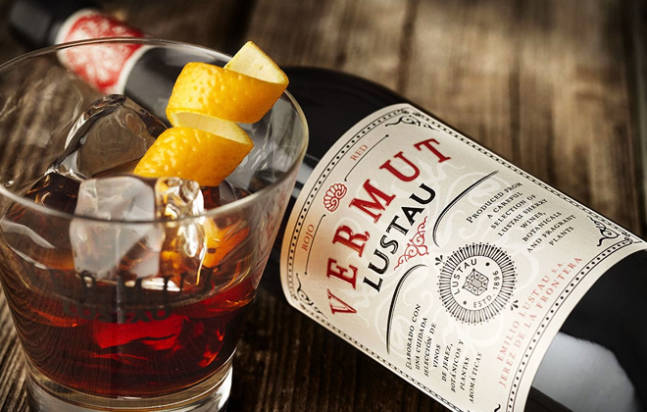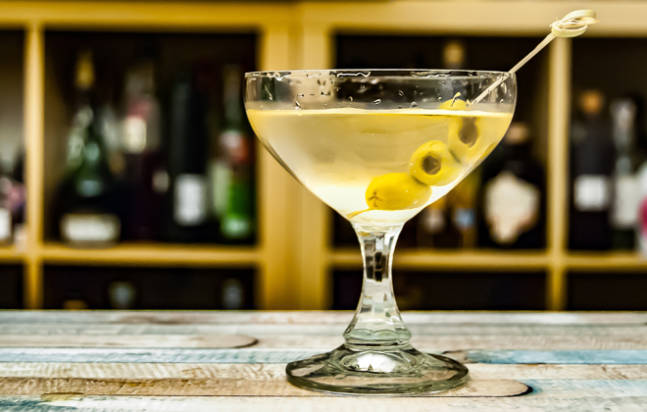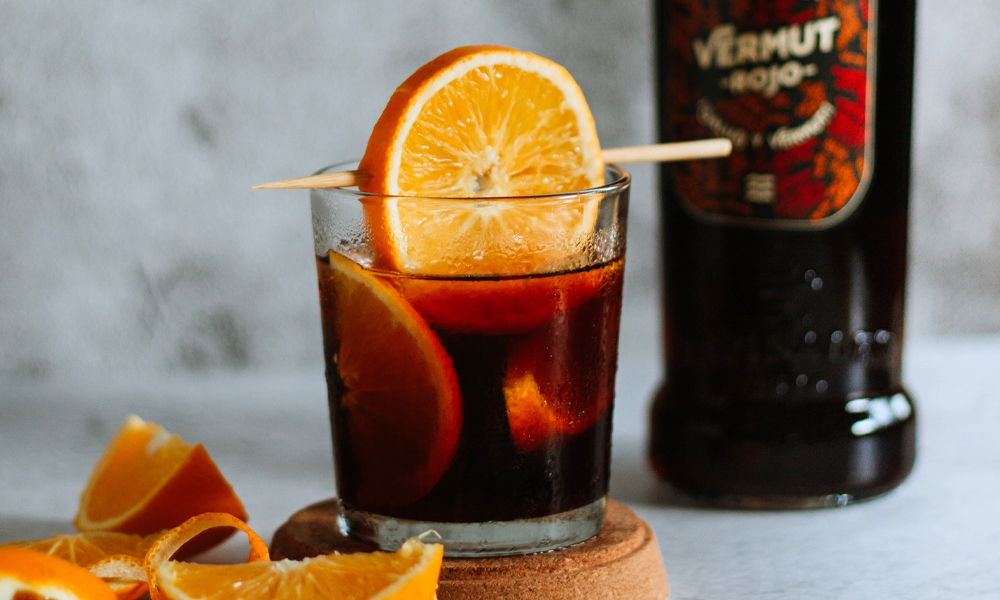Unless you spent your formative years in Italy or France a few decades ago, you probably don’t know much about vermouth except for the fact it’s a key component in some classic cocktails. You probably also have a bottle or two of it buried at the back of your fridge or on your bar that you never use. Honestly, this is to be expected. Vermouth was incredibly popular in the civilized parts of Europe–particularly by the royals–as an aperitif served on its own or with garnishes…but that was like 2 centuries ago. Drinking culture has changed significantly since then, but vermouth is here to stay.
What, exactly, is vermouth?
If you want to get technical, vermouth is an aromatized fortified wine much like sherry, madeira, or port with the addition of a bittering agent. Dive into the etymology and you’ll learn the French “vermout” comes from the German “wermut” which means “wormwood.” The first vermouth was actually thought to have come about by Hippocrates macerating wormwood and other leaves in wine, but wormwood isn’t typically used in most modern vermouth. (There are some exceptions to this that you can still find in Europe, but if you want to chase the green fairy, you’re probably going to have to find some proper absinthe.)

Sweet Vermouth v. Dry Vermouth. What’s the difference?
Sweet and dry. That’s all there is. That’s what anyone not in the know would have said if they just took a trip through their local supermarket liquor section. They probably also would have come up with just Gallo and Martini & Rossi options. Vermouth is so much more than that if you dig a little deeper.
Sweet vermouth–aka red / rosso / rojo–traditionally hails from Italy and is the cornerstone of classic cocktails like the Manhattan and the Negroni. Dry vermouth–typically clear in color–is from France and is what’s called for in martinis. Blanc / Bianco vermouth–the former in France and the latter in Italy–lies somewhere between the two in terms of dry versus sweet. It’s worth noting at this juncture that, despite appearances convincing you otherwise, all three styles generally utilize neutral white grapes.
Why do I need vermouth?
Are you a bourbon drinker? Scotch? Armagnac? Rum? Or maybe you just enjoy beer? That’s all fine, but we’re willing to bet you still keep vodka, gin, non-alcoholic and other options on your bar because that’s what a good host does. Vermouth is one of those ingredients that you probably won’t use all that frequently–unless you’re living in the Mad Men era–but is absolutely essential to every home bar because it’s part of a handful of classic cocktails.

What cocktails do I make with vermouth?
For sweet vermouth cocktails, you’re looking at Manhattans, Negronis, Boulevardiers and the like. For dry vermouth cocktails, it’s martinis all the time. [Editor’s Note: Listen up Bond, James Bond, whether you’re ordering / making a proper Vesper or a Martini, no one would ever order a spirit-forward cocktail shaken not stirred. Don’t be that guy.] Or, sub out your favorite amaro and simply whip up a vermouth spritz! Regardless of the cocktails you’re making–or hell, maybe you want to drink it straight like an Armagnac or other aperitif–multiple vermouth options are essential for any complete bar setup.
Ok. You convinced me. What are the best vermouth options should I buy?
We hate to give you the run around, but this also depends a lot on your flavor profile and what you’re making. If you’re only going to have one vermouth on your bar, we’d go Carpano Antica Formula because it’s lush, fruit-forward, easy to sip and makes a damn near perfect cocktail when it calls for sweet vermouth. If you’re a martini person, it’s Dolin dry all day, no question, because it does the job while staying firmly in the supporting actor category. If you want to go old school and sip your vermouth as an after dinner aperitif, we’d go with the Cocchi Storico Vermouth di Torino because it combines sweet and savory flavors in a way that most other spirits do not.
I bought your vermouth options, now what?
Explore. Explore. Explore. Whether you’re working with Carpano, Cocchi, Martini, Cinzano, Punt e Mes, or any of other sweet/dry/bianco options, each vermouth you taste is going to be slightly different regardless of category–just like all the spirits you enjoy taste slightly different. Find your favorite option, add it to a cocktail, and serve it to all your friends. Report back to us on your favorites.




